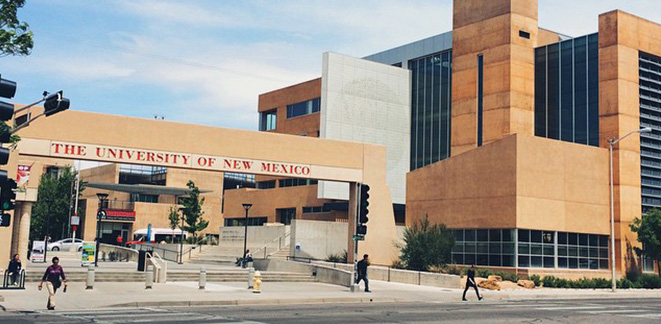
ALBUQUERQUE, N.M. (BP) — Researchers at the University of New Mexico will no longer procure, sell, or dissect aborted baby body parts, the university announced recently.
 The research program led for two decades by Robin Ohls, a pediatrics professor, was halted following an internal investigation. Both the New Mexico Alliance for Life and the U.S. House of Representatives’ Select Panel on Infant Lives, organized to investigate allegations of fetal tissue trade exposed in a series of undercover videos, said evidence from their own investigations pointed to the university’s violation of state and federal law.
The research program led for two decades by Robin Ohls, a pediatrics professor, was halted following an internal investigation. Both the New Mexico Alliance for Life and the U.S. House of Representatives’ Select Panel on Infant Lives, organized to investigate allegations of fetal tissue trade exposed in a series of undercover videos, said evidence from their own investigations pointed to the university’s violation of state and federal law.
Buying, selling, or otherwise transferring fetal tissue for “valuable consideration” violates a U.S. law that stipulates offenders can face fines and up to 10 years in prison. The New Mexico Spradling Act also “prohibits making anatomical gifts of the remains of any fetus that is the product of an induced abortion.”
The university vehemently denies any wrongdoing, saying it has “been transparent and cooperative with every agency that has inquired into our work in this area. The plain fact is that UNM has never bought or sold fetal tissue.”
University emails obtained by the New Mexico Alliance for Life appear to show Ohls asking a researcher in Michigan to pay $150 per tissue sample. The researcher, Tammy Movsas of the Zietchick Research Institute in Plymouth, Mich., reportedly wrote back, “[B]ecause I have some discretion with how the [research] funds are used, I can reimburse up to a total of $7,500 with the funded grant.”
Internal documents requested by the House panel showed a log of baby parts procured from abortion center Southwestern Women’s Options (SWO), with which UNM has close ties. Some entries are for finding a pancreas, a broken stomach, or a brain.
Some of the faculty held what was called a “Neuroscience Summer Experience” in the summer of 2012 during which they dissected aborted fetal brains in front of high-school students. The university had apparently requested the brains from SWO and asked specifically for babies aborted between 24 and 28 weeks of gestation.
The House panel determined that evidence revealed a “symbiotic relationship” between the university and abortion center. It also found that UNM “aggressively engaged in expanding abortion in New Mexico” by training abortionists, granting them volunteer faculty status, sending its own medical residents to SWO to perform abortions, and encouraging pro-abortion activities among its faculty and staff.
It also found that regardless of whether UNM paid for specimens or SWO had permission from the mothers to donate their babies for research, the university definitely violated the Spradling Act by obtaining any aborted fetal tissue from SWO.
When the panel referred UNM and SWO to New Mexico Attorney General Hector Balderas, he said he would not prosecute them.
The university then launched its own investigation. Meanwhile, the House panel asked the U.S. Justice Department to review the case.
New Mexico Alliance for Life Director Elisa Martinez said she hopes the university will go one step further and turn the investigation over to federal authorities. Closing down the research is a “small victory, because we won’t see women being deceived and the lives of unborn children commodified,” she said.















